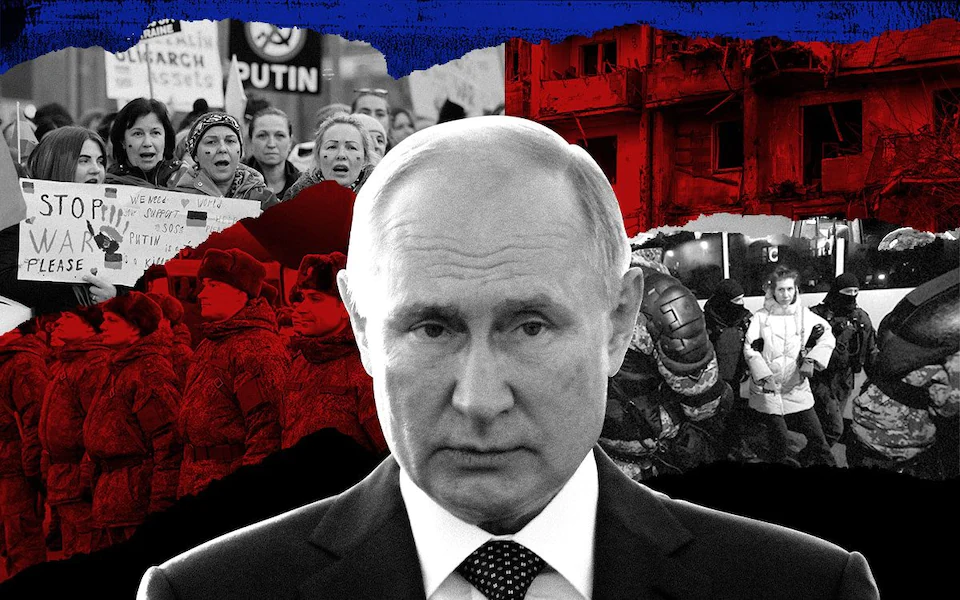On June 23 in Moscow, Lieutenant-General Andrey Gurulev, a member of the Russian State Duma Defence Committee, announced the need to capture part of Lithuania in order to create a land corridor to the Kaliningrad region of the Russian Federation, which is now de facto in a transport and logistics blockade along the land route.
On June 25, Russian journalist Vladimir Dobrynin published an article in which he compares the war unleashed by Russia against Ukraine with the Spanish Reconquista — the reconquest of Spanish lands occupied by the Saracens in the Middle Ages. In other words, the meaning is formed that Russia is returning the once lost lands, which, according to the author, «were temporarily out of its control.»
These two statements are not accidental. Putin’s continued course of further escalation of the war and the tightening of the Kremlin’s foreign policy rhetoric that positions the West as a strategic adversary means that for Russia there really are no declared «red lines» that Putin spoke about before the invasion of Ukraine. For him, the existence of independent countries in the post-Soviet area is already a priori a «red line». Putin seeks to bring the post-Soviet countries back under Russian influence and will stop at nothing until he is stopped. And he values his allies. June 25 is notable for two more statements. Following the meeting between Putin and Lukashenka in St. Petersburg, the Russian President said that all issues related to the creation of the «Union State» had been agreed, and that Belarus would receive Russian heavy weapons in the coming months. This means that Putin wants to strengthen Belarus so much that in the future it could invade the territory of Ukraine, untying the hands of Russian troops in other sectors of the front. In turn, Lukashenko said that «the blockade of the Kaliningrad region is a declaration of war.» On the same day, Xi Jinping said that «China will return Taiwan by any means, including military.» The sequence and context of such statements are very disturbing and in fact mean that now the world is closer than ever to unleashing a third world war, and its main “architect” is Putin, who deliberately incites his allies to make such statements. The tightening of anti-Western rhetoric in Russia is gaining momentum, and recently the State Duma of the Russian Federation also announced that “in the event of a serious escalation”, Russia will destroy London in the first place, because the main threat to the world “comes from the Anglo-Saxons”. This means that Russia is deliberately confronting the West and is preparing for possible scenarios, including a military one.
It was the actions of Putin, who ordered a full-scale invasion of Ukraine, that provoked geopolitical turbulence in the world, including the growth of tension around Taiwan, which could destabilize the Asia-Pacific region. China is closely watching the confrontation between Russia and the West and understands that the sanctions imposed on the Russian Federation have a negative impact on European countries, which are still dependent on Russian energy supplies. If Russia has military successes in Ukraine, China may well decide on a military invasion of Taiwan, in the event that the West, led by the United States, cannot give a symmetrical response. In case of a military destabilization of East Asia, the world may expect the largest military catastrophe in modern times. The contours of the war in Ukraine are long-term, because Putin has made a final decision on maximum territorial expansion — and its geography is not limited to Ukraine. Russian troops will advance as long as they have the resources to do so. And if the West does not stop Putin in Ukraine, then Russian tanks may end up in the capitals of Western European countries. The most important factor in leveling the Putin threat is the systematic and targeted weakening of Russia so that it no longer has the opportunity to wage wars of conquest. Therefore, Ukraine is not the strongest, but a critically important piece on the geopolitical chessboard. Putin takes into account only what is happening on the battlefield, so weapons are the most important criterion for supporting Ukraine. The civilizational future of the West is now being decided on the battlefield in Ukraine, which needs timely supplies of Western weapons.

